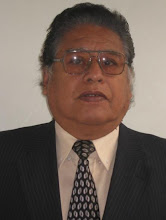


Home Treatment Options Side Effects Tools and Trackers Finding Support Prevention and Detection
Understanding My Diagnosis
The Basics of Cancer
Types of Tests
Treatment Options
Understanding Side Effects
My Healthcare Team
Talking with Others About My Diagnosis
Customize Now
Understanding My Diagnosis
A diagnosis of cancer can be a shocking, difficult experience. You may feel overwhelmed, even frightened by the days, weeks, and months to come. Everyone has their own reaction, and emotions can be unpredictable. The key to taking control of your condition starts by understanding your diagnosis. Use this information to guide you through this part of your experience.
Get the Facts
Start with keeping a notebook. Use this notebook to keep track of all the information related to your diagnosis and treatment. Before your visit, do any research you feel is appropriate, and write down what you’ve learned, as well as questions and concerns you may have. During the visit, jot down as much information as you can, even the most basic information, as people tend to forget things after leaving the doctor’s office. A few questions you may want to discuss with your doctor include:
* What kind of cancer is it?
* Where is it located?
* What are my treatment options?
* Are there alternative treatment options I could consider?
* What are possible side effects of treatment and how can they be managed?
* Are there support groups I can get involved with?
* Will I be able to continue working while undergoing treatment?
Cancer Staging
Staging is the process a physician uses to learn the extent of the cancer, and to determine if the disease has spread. Knowing the stage helps the physician choose the best possible treatment for the disease.
Physicians now use the TNM classification system as a tool to stage their patients’ cancers. The T, N, and M categories are each staged based on a number of criteria.
Cancer Grade
A pathologist determines a cancer grade by comparing cancer cells to normal cell samples. The cancer grade is an indication of just how different the cells appear under a microscope compared to healthy, normal cells. The more abnormal the cells, the higher grade assigned to the cancer. The code ranges from lowest (Grade I), which means the cells resemble normal cells, through the highest (Grade III ), which indicates the cancer cells do not resemble normal, healthy cells. The grade of the tumor and staging of the cancer are both considered when determining the best course of treatment.
Send to a friend Email Print This Page Print
Next
CHOOSE A CANCER TYPE:
* Bladder Cancer
* Brain Cancer
* Breast Cancer
* Cervical Cancer
* Colorectal/Colon Cancer
* Esophageal Cancer
* Gastrointestinal/Stomach Cancer
* Head & Neck Cancer
* Kidney Cancer
* Leukemia
* Liver Cancer
* Lung Cancer
* Lymphoma
* Multiple Myeloma
* Ovarian Cancer
* Pancreatic Cancer
* Prostate Cancer
* Skin Cancer
* Soft Tissue Sarcoma
* Uterine Cancer
* About Cancer.com
* |
* Contact Us
* |
* Site Map
This site is intended for U.S. audiences only. © Ortho Biotech Products, L.P. 2002-2008
By using this site, you agree to our Legal Notice and Privacy Policy.
Last Modified On Feb 18 2009 at 12:46:33 EST

Lung cancer often goes unnoticed in its early stages. As the disease develops, a persistent cough develop and chronic cough worsen. include chest pain, shortness of breath, hoarseness, bloody fluid coughed up from the respiratory tract, and frequent bouts of bronchitis or pneumonia. Sometimes the first was bone pain, headaches, dizziness,I was so piss off and tired of my life until i read about Dr Itua herbal medicine on blogspot i really thought it was scam when i first contacted him so little time i think about it and bought the herbal medicine which i took for three weeks and i was totally cured his treatment is so unique,I never thought i will be able to be free from Lung Cancer.But not only this Lung Cancer This great man can cure,Dr Itua also told me he can cure such diseases like... COLORECTAL CANCER, BLADDER CANCER, PROSTATE CANCER, KIDNEY CANCER, LUNG CANCER, SKIN CANCER, UTERINE CANCER, LEUKEMIA,HIV/AIDS,OVARIAN CANCER,BLOOD CANCER,MEN/WOMAN INFERTILITY,BURKITT LYMPHOMA - NON-HODGKIN.BRONNCHIAL TUMORS, BRAIN TUMORS,BILE DUCT CANCER,BONE CANCER,VAGINAL CANCER,HERPES VIRUS,LOVE SPELL,HEPATITIS,HE'S A GREAT HERBAL DOCTOR.HERE HIS CONTACT EMAIL::: drituaherbalcenter@gmail.com/WHATSAPP:::+2348149277967
ResponderEliminar